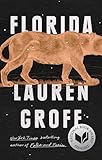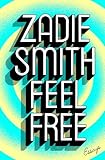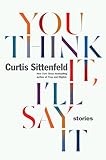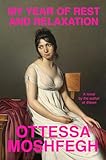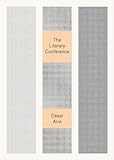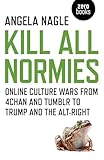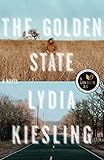It’s been a great year for reading! Or, at least, every year is a great year for reading, and I’ve never done as much as I’ve done this year. Strange as it seems, the year in which I’ve worked hardest is also the year I’ve read the most, by every metric. The majority of it was probably to offset the noise around me—but a not-insignificant minority was for inspiration, and for optimism.
But as I look back at my year of reading, I find some odd themes. For one, whenever I’ve been utterly bewitched by a writer, I have gone to the bookstore and bought as much of their oeuvre as possible (I know this because one, and only one, aspect of my expenses has been driven up). For another, when I think of what I’ve read—particularly nonfiction—it’s often not because of what the book is ostensibly for (insofar as books have singular purpose, which they do not), but because of something else entirely. So let’s take a gander:
1. Epistemology
I’ve spent much of this year daydreaming about how people seem to know things with such certainty. Every year is like this, obviously, but this one far more than others. Imagine my frustration at the knottiness of the answer. What is Lauren Groff’s Fates and Furies about? For me, it was a demonstration of an idea that simply the act of constructing fictions about oneself (within an act of fiction) makes the fictive more real. So, of course, when Florida came out, I threw myself at it as if it were my last allowed love affair with a book—and found something very similar, because I went looking for it. Many other things satisfied the same itch. Victor LaValle’s The Changeling, Sigrid Nunez’s The Friend, Camille Bordas’s How to Behave in a Crowd were more like works of philosophy than fiction.








This was probably not altogether helped by the fact that I was simultaneously reading Seneca’s Consolations, Montaigne’s Essays, Plutarch’s Fall of the Roman Republic, and Lucretius’s The Way Things Are, and all manner of skeptical philosophers. I say this not to give myself a pat on the shoulder for being oh-so-academic: I quite literally went back to the source, so to speak, whenever things seemed even the tiniest bit off, both in real life and in literature, only to return far more confused. That, then, let me down a rabbit hole of “post-structuralist” literary theory. What that really means is: I’ve been hearing some names over and over for years now, and finally felt embarrassed enough to actually read them. And so I read Roland Barthes’s S/Z and The Pleasure of the Text, Jacques Derrida’s Writing & Difference, and although I likely understood the bare minimum, I understood enough to feel deeply suspicious that anything I subsequently read could have some actual import towards understanding the world or myself. Rachel Cusk’s Kudos, like the other two books in the Outline trilogy, then furthered the case for literature bearing no relation to reality. I wondered if I’d ever get away with a book fashioned out of a series of transcripts for every one-sided conversation I had with another person.


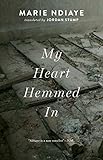


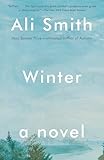
2. Bafflement
My active search for all things baffling probably started after I read Antoine Volodine’s Minor Angels, Roberto Bolaño’s Antwerp, and Marie NDiaye’s My Heart Hemmed In. I loved them all, and I spent enough time with NDiaye to be somewhat confident about what I was reading, but mostly they made me feel very inadequate, in the way that ‘intelligent’ books often do. Ahmed Bouanani’s The Hospital made me feel ill, and I’m pretty sure I skipped a doctor’s appointment because I was slightly afraid I’d land up in purgatory. Fernando Pessoa’s The Book of Disquiet induced my first ever existential crisis (or, at least, what I think was an existential crisis), and then Clarice Lispector’s The Chandelier made it worse. Ali Smith’s Autumn and Winter didn’t really help me be less baffled—though inhabiting their fractured, Brexit-era semi-narratives certainly helped to distract me.
Notably, as reprieve from all this, I read Zadie Smith’s Changing My Mind, and then sat and thought for a while; soon, I had finished Feel Free as well and was caught between the twin sentiments of annoyance at her seemingly-tepid politics and awe at her ability to make me doubt everything nonetheless. In other words—a reprieve it was not. Alexander Chee’s How to Write an Autobiographical Novel swooped in a bit dramatically; inasmuch as it helped me feel my ambivalence wasn’t necessarily a problem. Also, it made me feel warm and fuzzy by helping with a bit with my imposter syndrome.
All this coincided with the fact that my patience, as with many others nowadays, was at an all-time low this year. I’ve been tired of liberal narratives for quite some time, and narratives set at maximum moral outrage that insist that this age of Trump is, for the first time in human history apparently, some unique assault on truth. So imagine my surprise when—having rolled my eyes through the first story—I found myself admiring the high-wire circus tricks on display in Curtis Sittenfeld’s You Think It, I’ll Say It, and simultaneously irritated with the far more radical and experimental My Year of Rest and Relaxation by Ottessa Moshfegh. The stories in Charles Johnson’s Night Hawks felt taut and sparse like Sittenfeld’s, but with fewer surprises, a lot more Buddhism than I could fathom, and fewer bourgeois settings. I liked them. The prose in Christine Schutt’s Pure Hollywood stories was lyrical and very bourgeois, but less searching than it seemed to think it was. Anyway, my collision course with all things bizarre all came crashing down when I read César Aira’s The Literary Conference. It was more ludicrous than anything I had ever read. So naturally, I bought all the translated books by Aira, apparently one of the most baffling of all living writers. By about book 8, I began to understand his ways, and felt grateful for his unapologetically-leftist bent. Then, for every subsequent book, I started to take notes on details that I found baffling, to see if the writer ever returned to them. I avoided Karl Ove Knausgaard all year, on purpose. The day before I wrote this, I devoured Amparo Dávila’s collection The Houseguest in one sitting. Once, my flat-mate knocked on my door, and what he probably saw was me: bug-eyed, and furiously turning pages which screamed sometimes like newborn children, crushed mice, like bats, like strangled cats.
3. Tradition
One of the other things I did most this year was think about what kind of writer I wanted to be. Having read some avant-garde horror novels (above), I read a little Gothic literature. I re-read Mary Shelley’s Frankenstein, and finding in it new things to love, turned to Horace Walpole’s The Castle of Otranto and James Hogg’s The Private Memoirs and Confessions of a Justified Sinner. The latter weaseled its way into a story I wrote which almost scared me to death—and then made me wonder how awful I must be to have written something like that. Still, by the time I had to read Mohammad Hanif’s Red Birds for review, I had read enough stuff to wonder why in the world South Asian writers kept writing such hackneyed stories when so many other possibilities existed, and unleashed a bit of a tirade on some very famous South Asian writers for the Chicago Review. I went back to Kamila Shamsie’s Home Fire, which I hadn’t liked at all the first time, and forced myself to pick out some things I did like. Somewhere in the middle, I read Fatima Farheen Mirza’s A Place for Us with some amount of glee, because it felt nothing like the reflexively Orientalist prose I’d gone off about. That made me very happy.
4. History
It doesn’t feel right at all to talk about the books that had a major impact on my year without mentioning some of the amazing nonfiction, most of which satisfied historical curiosities whether they were meant to be historical or not. Sarah Smarsh’s Heartland and Meghan O’Gieblyn’s Interior States were expert antidotes for my irritation with tired Trump-era (ugh, even that term) tropes, and expanded my understanding of this very strange country in all sorts of empathic ways (and with O’Gieblyn, some unsettling ways, too). Alice Munro’s The View from Castle Rock was fascinating—though I knew in her case she had a small, not-insignificant luxury. After all, how far back one can construct one’s own family tree seems to be at least one measure of freedom. I read one very expansive history of the U.S. in Jill Lepore’s These Truths, and one over a far shorter period of time in Angela Nagle’s Kill All Normies. One is enormous, the other skinny—but both are a little unsatisfying. I suppose These Truths should have satisfied my itch for epistemology too; but as it turns out that—for this American history dilettante—meeting the standards of one Howard Zinn is nigh-impossible.
So: on to kinds of history. I read Henry Gee’s Across the Bridge—about the evolution of vertebrates—and talked about it at work (my laboratory) daily. It proved infectious. Ursula Heise’s Imagining Extinction was magnificent. I didn’t want it to end. Anna Tsing’s The Mushroom at the End of the World was fascinating—who knew there was so much to know about the global matsutake mushroom trade!— and on a craft-level, a lesson for academics: see, you don’t have to be boring at all! Ann Blair’s Too Much to Know was utterly convincing in the way things one is already convinced about can be made even more convincing simply by becoming encyclopedic. Andreas Malm’s The Progress of This Storm and Deborah Coen’s Climate in Motion had equal and opposite effects: the first made me progressively more enraged and confused, the second made me progressively calmer and clearer. Essentially, environmental historians still haven’t quite figured out precisely how pessimistic they ought to be about climate change; but I suppose, in the Trump era, we should be happy they’re writing at all.
5. Crying
I don’t prepare to cry when I read (who does?) But I would be remiss if I didn’t mention the books that made me stop in my tracks and sob. Most times it had very little to do with the book and everything to do with my day or week. But sometimes it was most definitely about the book.
There is one particular moment in my editor Lydia Kiesling’s The Golden State where the reader, just like the protagonist Daphne, has to process what has just occurred and cry. Anybody who has read it will probably know which moment this is (I’m not exactly being subtle), but that cry was one of the best cries I’ve ever had all year. Other similar stop-and-cry impulses happened during R.O. Kwon’s The Incendiaries and Porochista Khakpour’s Sick—both cries were probably more about me than the people I was reading about, but both were beautiful and cathartic and only one happened in public. Again—sometime in the middle of the year—I went to a philosopher to figure out all this crying business. The fact that I chose Nietzsche’s The Birth of Tragedy for this task is pretty stupid when I think about it, because it didn’t make me cry at all, and I had thought it could teach me something about verisimilitude, but it did not. Anyway, that is what I did. Regardless, I read a whole lot after that to make myself cry, but nothing worked. Or at least, nothing worked as well as one particular book did; Celeste Ng’s Little Fires Everywhere. I have one theory that explains why: I realized that the number of books I had read was directly proportional to how lonely I was. So take that, Barthes! Books may not resemble life, but the act of reading does.
More from A Year in Reading 2018
Don’t miss: A Year in Reading 2017, 2016, 2015, 2014, 2013, 2012, 2011, 2010, 2009, 2008, 2007, 2006, 2005

